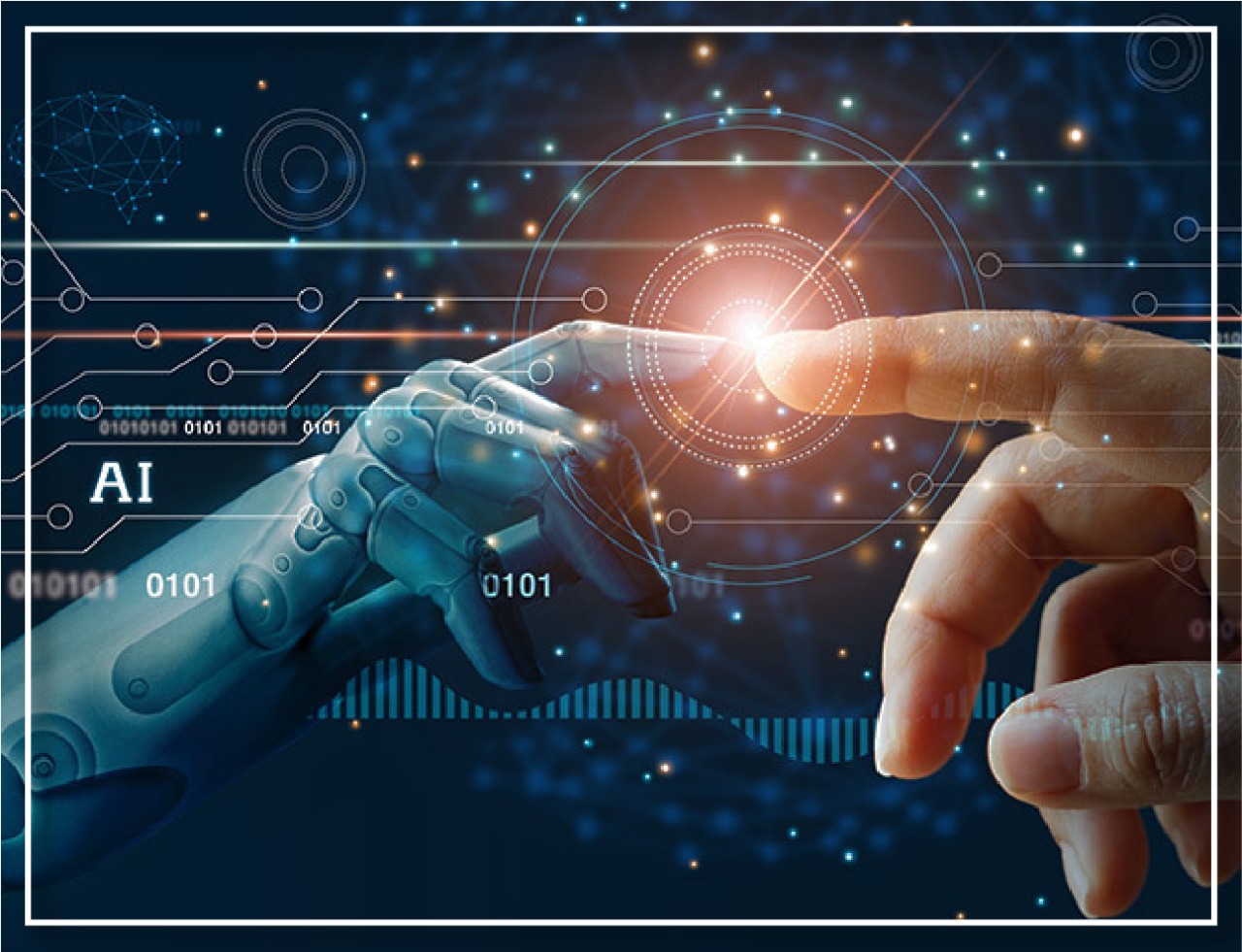The impact of Artificial Intelligence and Machine Learning on eCommerce Development

Artificial Intelligence (AI) and Machine Learning (ML) are revolutionizing the way ecommerce businesses operate. These technologies enable ecommerce companies to automate and optimize various processes, such as product recommendations, search and navigation, customer service, and sales forecasting. They also allow for more personalized shopping experiences through the use of predictive analytics. Additionally, AI and ML can improve fraud detection and product inventory management. Furthermore, NLP and image recognition also play a huge role in ecommerce development. All of these advancements can lead to increased efficiency, improved customer satisfaction, and higher profits for ecommerce companies.
AI ecommerce
AI ecommerce refers to the use of Artificial Intelligence technology in the development and operation of online shopping platforms. This can include automation of various processes such as product recommendations, search and navigation, customer service, and sales forecasting. AI can also enable personalized shopping experiences through the use of predictive analytics. Additionally, AI can improve fraud detection and product inventory management. The integration of AI in ecommerce can lead to increased efficiency, improved customer satisfaction, and higher profits for online businesses.
Machine Learning online shopping
Machine Learning (ML) in online shopping refers to the use of ML algorithms and models to improve the user experience and business operations of e-commerce platforms. This can include personalization of product recommendations, optimization of search and navigation, and automating customer service tasks. ML can also be used for predictive analytics, such as forecasting sales and managing product inventory. Additionally, Machine Learning can be used for fraud detection, image recognition and natural language processing tasks. The integration of ML in online shopping can lead to increased efficiency, improved customer satisfaction and higher profits for online businesses.
Ecommerce automation
Ecommerce automation refers to the use of technology to automate various processes within an ecommerce business. This can include automating customer service tasks, order processing, inventory management, and marketing. Automation can also include the use of AI and ML algorithms to optimize and personalize the shopping experience for customers. This can improve the efficiency and scalability of ecommerce operations, reduce costs, and increase profits for businesses. Ecommerce automation also can improve customer satisfaction by providing faster and more accurate service.
Intelligent product recommendations
Intelligent product recommendations refer to the use of AI and ML algorithms to personalize product suggestions for customers on ecommerce platforms. This can be done by analyzing customers’ browsing and purchase history, as well as demographic and behavioral data. This can also be done by using collaborative filtering, content-based filtering and matrix factorization methods. By providing personalized product recommendations, ecommerce businesses can increase customer engagement, sales, and loyalty. It also can improve customer experience and can be used as a marketing tool to increase customer retention and drive revenue.
Predictive analytics for ecommerce
Predictive analytics for ecommerce refers to the use of data analysis and statistical models to predict future customer behavior and market trends. This can be used for forecasting sales, identifying potential customers, and managing inventory. Predictive analytics can also be used to personalize the shopping experience for customers by providing targeted marketing and product recommendations. The technology can also be used to detect fraud and optimize pricing strategies. Predictive analytics can help ecommerce businesses make data-driven decisions, increase efficiency, and boost revenue.
Personalized shopping experiences
Personalized shopping experiences refer to the use of technology to tailor the shopping experience for individual customers based on their preferences and behavior. This can include personalized product recommendations, targeted marketing, and customized website content. Personalization can also include the use of AI and ML to provide customers with a more seamless and efficient shopping experience. By providing personalized experiences, ecommerce businesses can increase customer engagement, loyalty, and sales. Personalization can also improve customer satisfaction, as customers feel valued and understood.
AI-powered search and navigation
AI-powered search and navigation refers to the use of Artificial Intelligence technology to improve the search functionality and website navigation for ecommerce platforms. This can include natural language processing to understand customer queries, semantic search to deliver more accurate results, and personalized search results based on customer browsing history and behavior. Additionally, AI-powered search can also include image and voice recognition. By providing accurate and personalized search results, ecommerce businesses can improve the customer experience, increase engagement and conversion rates, and ultimately drive revenue.
Chatbots in ecommerce
Chatbots in ecommerce refer to the use of AI-powered chatbot technology to automate customer service and support tasks. Chatbots can interact with customers through text or voice-based conversations, answering questions and providing assistance with tasks such as product information, order status, and returns. These interactions can take place on ecommerce websites, mobile apps, social media platforms, and messaging apps. Chatbots can handle large volumes of customer queries, providing fast and efficient assistance 24/7. By implementing chatbots, ecommerce businesses can improve customer service, increase efficiency, and reduce labor costs.
Automated customer service
Automated customer service refers to the use of technology to automate customer service and support tasks. This can include self-service portals, chatbots, and virtual agents. Automated customer service can handle a wide range of tasks such as answering frequently asked questions, resolving simple issues, and providing information about products and services. This can be done through multiple channels such as website, mobile apps, social media, and messaging apps. Automated customer service can provide fast and efficient assistance 24/7, improve customer satisfaction, and reduce labor costs for ecommerce businesses.
AI-driven sales forecasting
AI-driven sales forecasting refers to the use of Artificial Intelligence and Machine Learning technology to predict future sales for ecommerce businesses. This can be done by analyzing historical sales data, customer behavior, market trends and other relevant data. AI-driven forecasting can use various techniques such as time series analysis, regression analysis, and supervised learning algorithms
. By providing accurate sales forecast, ecommerce businesses can optimize inventory, manage resources, and plan for future growth. AI-driven sales forecasting can help ecommerce businesses to make data-driven decisions and improve decision making process.
Predictive product inventory management
Predictive product inventory management refers to the use of AI and ML technology to predict future demand for products and optimize inventory levels in ecommerce businesses. This can be done by analyzing historical sales data, customer behavior, market trends, and other relevant data. By providing accurate predictions of product demand, ecommerce businesses can ensure that they have the right products in the right quantities at the right time, reducing stockouts and overstocking. This can lead to cost savings, improved customer satisfaction and higher revenue for ecommerce businesses. Additionally, it can also help in forecasting the sales and managing resources.
AI-enhanced fraud detection in ecommerce
AI-enhanced fraud detection in ecommerce refers to the use of Artificial Intelligence and Machine Learning technology to detect and prevent fraudulent activities in online shopping platforms. This can include analyzing customer behavior, transaction data, and identifying patterns that may indicate fraud. AI-enhanced fraud detection can also include using supervised and unsupervised learning algorithms to identify abnormal behavior and flag potential fraud. By using AI-enhanced fraud detection, ecommerce businesses can improve their ability to detect and prevent fraud, reduce financial losses, and protect their customers’ personal and financial information.
Machine Learning-powered image recognition for ecommerce
Machine Learning-powered image recognition for ecommerce refers to the use of Machine Learning algorithms to analyze and understand images on ecommerce platforms. This can include image search, image-based product recommendations, and image-based navigation. This technology can also be used to improve product tagging, image-based product search and visual search capabilities. By using ML-powered image recognition, ecommerce businesses can improve the customer experience by providing faster, more accurate and more visual results. Additionally, it can also help in automating product tagging, inventory management and improving search capabilities.
Natural Language Processing in ecommerce
Natural Language Processing (NLP) in ecommerce refers to the use of NLP technology to analyze and understand human language in online shopping platforms. This can include understanding customer queries, providing personalized product recommendations, and automating customer service tasks through chatbots. NLP can also be used for sentiment analysis to understand customers’ opinions about products and services. By using NLP, ecommerce businesses can improve the customer experience by providing more accurate and efficient service, and make data-driven decisions by understanding customer needs and preferences. Additionally, it can also help to improve search capabilities, voice-based search and personalizing the overall experience.
Conclusion
In conclusion, Artificial Intelligence (AI) and Machine Learning (ML) are having a significant impact on the development of ecommerce. These technologies are being used to automate and optimize various processes such as product recommendations, search and navigation, customer service, and sales forecasting. They also enable personalized shopping experiences through the use of predictive analytics. Additionally, AI and ML are being used to improve fraud detection and product inventory management, as well as image recognition and natural language processing. These advancements can lead to increased efficiency, improved customer satisfaction, and higher profits for ecommerce companies. As the technology continue to evolve, we can expect to see even more advancements in the field of AI and ML in ecommerce.



